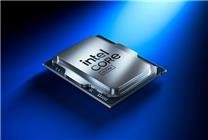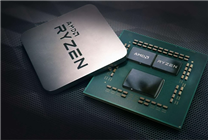U.S. Revokes Semiconductor Factory Exemptions: A Strategic Move with Global Ramifications
Summary:
- The U.S. has revoked exemptions for leading semiconductor manufacturers, affecting companies like Samsung, SK Hynix, and TSMC.
- Future purchases of U.S. semiconductor equipment will now require separate approvals, increasing operational uncertainty for these firms.
- This move highlights the U.S.’s strategy to tighten control over the global semiconductor supply chain.
In a significant policy shift, the United States has recently revoked exemptions allowing major semiconductor manufacturers—including Samsung, SK Hynix, and Intel—to operate their factories in China without stringent oversight. This announcement, made on September 3, has particularly impacted TSMC, resulting in a substantial decline in its stock price shortly thereafter.
The U.S. Department of Commerce has announced that the Verification of End Use (VEU) authorization for these companies will be terminated by December 31 of this year. Consequently, if these manufacturers wish to procure semiconductor equipment from American companies in the future, they will be required to submit individual applications for each purchase. This policy change does not entirely preclude the acquisition of U.S. equipment; however, it introduces a layer of uncertainty that complicates the operational landscape for these firms.
Notably, both Samsung and SK Hynix manage thousands of licensing applications annually, while the volume for TSMC remains undefined but is projected to be significant. For Intel, whose U.S.-based factories focus primarily on packaging and testing, the immediate impact is expected to be minimal. In contrast, TSMC’s operations in China primarily involve its Nanjing wafer factory, which is responsible for producing advanced process technology at nodes between 16 and 12nm. This segment represents approximately 3% of TSMC’s total revenue, indicating that while the impact may not be catastrophic, it is far from negligible.
On the other hand, Samsung and SK Hynix are set to experience a more profound effect due to their extensive production capabilities. Together, they account for approximately one-thirdof the global memory and flash memory chip supply, making their operational continuity significantly crucial.
The U.S. Department of Commerce’s Bureau of Industry and Security (BIS) has been overwhelmed by the increasing number of licensing applications from major semiconductor companies. Despite this challenging workload, the U.S. government has opted to revoke these exemptions, a strategic move deemed necessary by American analysts to tighten its grip on the semiconductor supply chain.
Recent commentary from financial media suggests that this decision is part of a broader strategy aimed at establishing stronger control over the global semiconductor industry. The U.S. aims to extend its regulatory reach not just over domestic companies but also to international giants like Samsung, TSMC, and SK Hynix. This signifies a shift in U.S. policy towards a more interventionist approach concerning its allies and competitors alike.
Implications of the Policy Change
-
Increased Administrative Burdens:
- Manufacturers must now navigate a more complex regulatory landscape. The individual licensing process can potentially delay operations and increase costs for companies striving to procure essential semiconductor equipment.
-
Strategic Control Over Supply Chains:
- By exerting regulatory oversight over foreign semiconductor firms, the U.S. seeks to ensure that these companies align with American geostrategic interests. This move could theoretically bolster U.S. technological competitiveness by limiting the capabilities of international competitors.
- Potential Market Disruptions:
- The new policy could lead to volatility in stock prices and disrupt revenue streams for the affected companies. As uncertainty rises, investors may react cautiously, leading to broader ramifications in the semiconductor sector.
Future Outlook
The situation adds a layer of tension between the U.S. and other semiconductor-producing countries. As the global demand for semiconductor technology continues to grow, the implications of this policy shift could resonate far beyond U.S. borders. The semiconductor industry must brace for a new era defined by increased scrutiny and regulatory challenges, impacting everything from research and development to final product deployment.
With semiconductor technology playing a pivotal role in various sectors—including automotive, consumer electronics, and artificial intelligence—the stakes are high. Companies must now strategize not only to maintain operational efficiency but also to comply with evolving regulatory frameworks.
In conclusion, the revocation of exemptions for major semiconductor manufacturers by the U.S. government underscores a critical shift in policy aimed at fortifying its influence over the global semiconductor landscape. This regulatory change will necessitate that companies adapt to new operational realities while navigating the complexities of compliance in a highly competitive and rapidly evolving market.
As the semiconductor sector grapples with these developments, manufacturers will need to enhance their regulatory strategies and investment in compliance mechanisms to thrive in an increasingly scrutinized environment.







